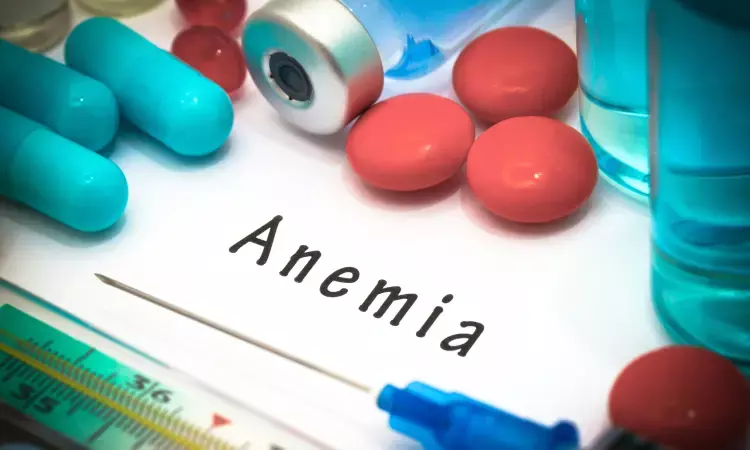- Home
- Medical news & Guidelines
- Anesthesiology
- Cardiology and CTVS
- Critical Care
- Dentistry
- Dermatology
- Diabetes and Endocrinology
- ENT
- Gastroenterology
- Medicine
- Nephrology
- Neurology
- Obstretics-Gynaecology
- Oncology
- Ophthalmology
- Orthopaedics
- Pediatrics-Neonatology
- Psychiatry
- Pulmonology
- Radiology
- Surgery
- Urology
- Laboratory Medicine
- Diet
- Nursing
- Paramedical
- Physiotherapy
- Health news
- Fact Check
- Bone Health Fact Check
- Brain Health Fact Check
- Cancer Related Fact Check
- Child Care Fact Check
- Dental and oral health fact check
- Diabetes and metabolic health fact check
- Diet and Nutrition Fact Check
- Eye and ENT Care Fact Check
- Fitness fact check
- Gut health fact check
- Heart health fact check
- Kidney health fact check
- Medical education fact check
- Men's health fact check
- Respiratory fact check
- Skin and hair care fact check
- Vaccine and Immunization fact check
- Women's health fact check
- AYUSH
- State News
- Andaman and Nicobar Islands
- Andhra Pradesh
- Arunachal Pradesh
- Assam
- Bihar
- Chandigarh
- Chattisgarh
- Dadra and Nagar Haveli
- Daman and Diu
- Delhi
- Goa
- Gujarat
- Haryana
- Himachal Pradesh
- Jammu & Kashmir
- Jharkhand
- Karnataka
- Kerala
- Ladakh
- Lakshadweep
- Madhya Pradesh
- Maharashtra
- Manipur
- Meghalaya
- Mizoram
- Nagaland
- Odisha
- Puducherry
- Punjab
- Rajasthan
- Sikkim
- Tamil Nadu
- Telangana
- Tripura
- Uttar Pradesh
- Uttrakhand
- West Bengal
- Medical Education
- Industry
Upper endoscopy may effectively diagnose iron deficiency anemia in children

Anemia is a common health problem in children. Among children in developed countries, the prevalence of iron deficiency in children <=4 years is estimated to be 20.1%, while the rate increases to 39% in developing countries the most common cause of anemia is not getting enough iron.
A new retrospective study reports the positive diagnostic yield of upper endoscopy in children with severe, unexplained iron deficiency anemia. The study was, presented at United European Gastroenterology Week 2023 in Copenhagen, Denmark, upper endoscopy allowed for the identification of the cause of iron deficiency anemia in more than 70% of children in the study.
Researchers n the current analysis, aimed to assess the diagnostic yield of upper endoscopy in children with severe, unexplained iron deficiency anemia, without gastrointestinal bleeding. They performed a retrospective study of children <18 years hospitalized with hemoglobin <7 gr/dL, who underwent upper endoscopy between 2016 and 2022. They collected baseline data on demographics, symptoms, laboratory results, endoscopic/histopathological findings, and treatment. They also identified follow-up data, including hemoglobin at 6 months and the need for repeat iron treatment. A total of 25 children with severe iron deficiency were evaluated for the analysis. Participants had a mean age of 10.7 years, 19 (76%) were female, and 8 (32%) were of Ethiopian origin.
The key findings of the study are
• The analysis showed the symptoms of anemia were present in 19 of 25 (76%) children, and gastrointestinal symptoms were present in 10 of 25 (40%) children. The mean hemoglobin level was 6.2 gr/dL (range, 3.2 - 6.9).
• The initial treatment included blood transfusion in 3 (12%) patients, intravenous iron infusions in 21 (84%) patients, and oral iron in 1 (4%) patient.
• Endoscopic findings revealed gastro nodularity, erosions, or polyps in 17 of 25 (68%) individuals and duodenitis/ulcers in 3 of 25 (12%) participants.
• Histopathology showed gastritis in 18 of 25 (72%) children and Helicobacter pylori in 9 of 18 (50%) children. Additionally, 5 children had collagenous gastritis, 1 had lymphocytic, and 3 had non-specific gastritis. Three children had nonspecific duodenitis and 1 had celiac disease.
• An etiology of iron deficiency anemia in 18 of 25 (72%) children and 15 without gastrointestinal symptoms was found.
• Over the follow-up period, hemoglobin levels were noted to have remained stable in 23 of 25 (92%) children, with only 2 requiring repeat iron therapy.
Researchers concluded that “Upper endoscopy enabled to identify the cause of iron deficiency anemia in over 70% of children”.
Reference: M. Kori, N. Yuran, T. Ben-Ami. High Diagnostic Yield of Upper Endoscopy in Children with Severe Iron Deficiency Anemia of Unexplained Cause. Data presented at United European Gastroenterology Week 2023. Copenhan, Denmark. October 14 – 17, 2023. https://ueg.eu/week.
MSc. Neuroscience
Niveditha Subramani a MSc. Neuroscience (Faculty of Medicine) graduate from University of Madras, Chennai. Ambitious in Neuro research having worked in motor diseases and neuron apoptosis is interested in more of new upcoming research and their advancement in field of medicine. She has an engrossed skill towards writing and her roles at Medical dialogue include Sr. Content writer. Her news covers new discoveries and updates in field of medicine. She can be reached at editorial@medicaldialogues.in
Dr Kamal Kant Kohli-MBBS, DTCD- a chest specialist with more than 30 years of practice and a flair for writing clinical articles, Dr Kamal Kant Kohli joined Medical Dialogues as a Chief Editor of Medical News. Besides writing articles, as an editor, he proofreads and verifies all the medical content published on Medical Dialogues including those coming from journals, studies,medical conferences,guidelines etc. Email: drkohli@medicaldialogues.in. Contact no. 011-43720751


